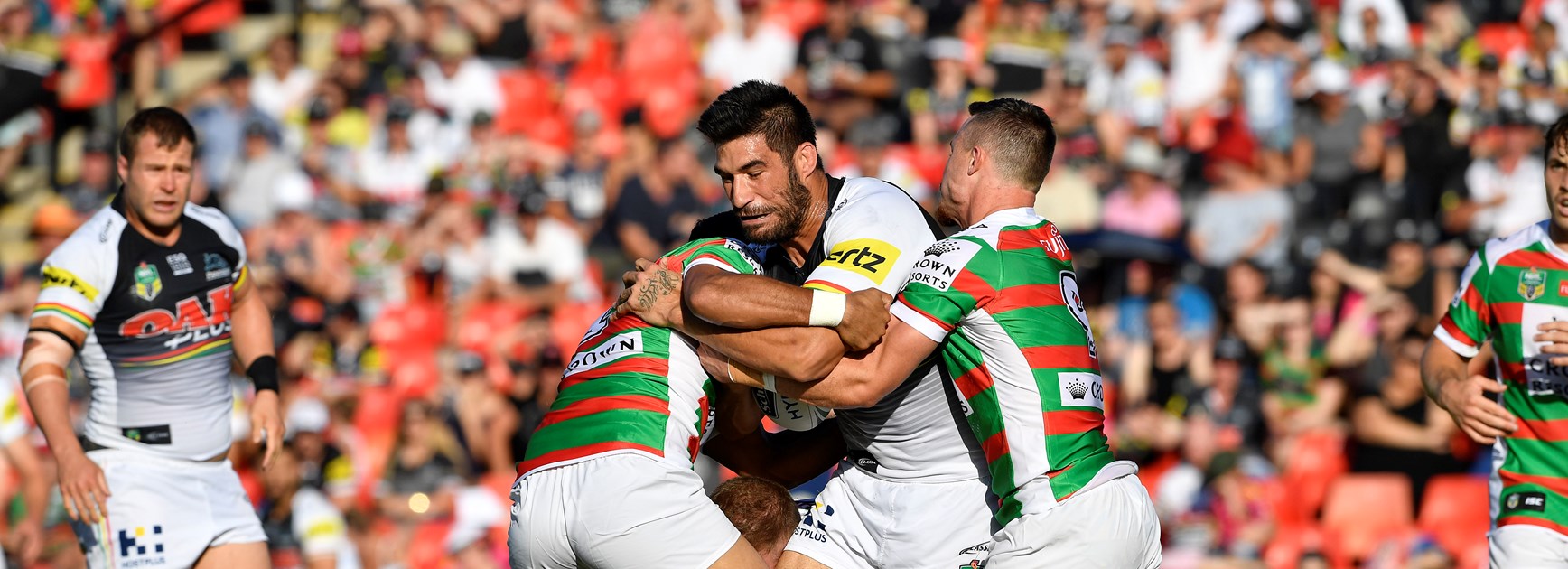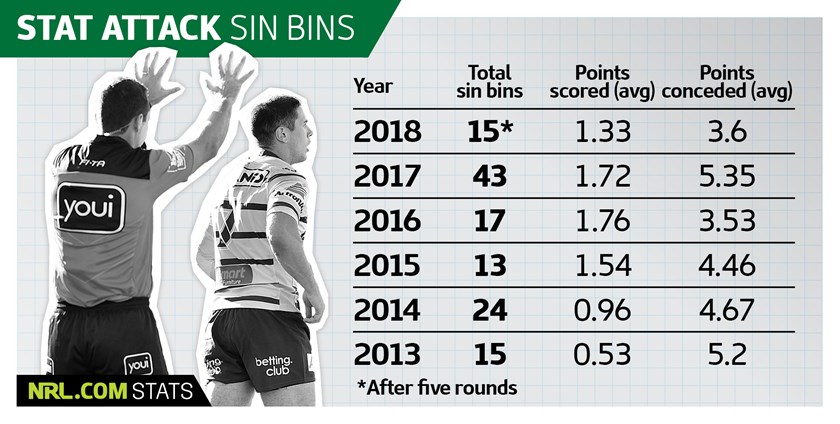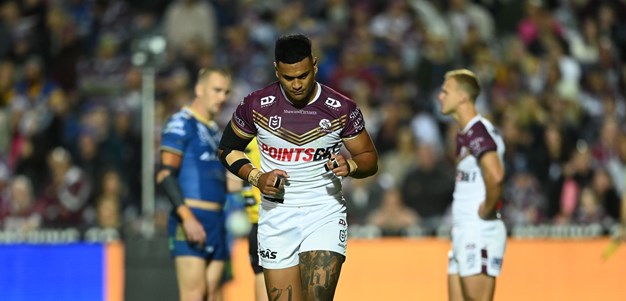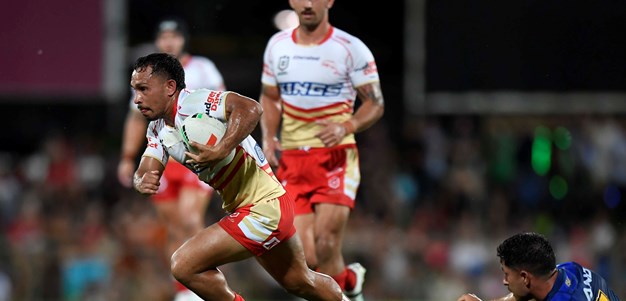
The rise in penalty counts has been a hot topic in the opening five rounds of the Telstra Premiership but the referees' use of the sin bin is on track for a record-breaking season.
While the debate remains over whether 10 minutes is too long for minor indiscretions, teams have managed to adjust with a man down accordingly.
According to NRL.com Stats, there have been 15 sin-binnings in the first five rounds with an average of three players per round for various cases – repeated infringements, verbal abuse and professional fouls.
At this rate, fans can expect in excess of 60 more players to get pointed to the sheds by the end of the season.
But just how much does it cost your side?
Of the 15 players who have been banished, 10 have had their team go on to win the game.
In 2017, you could almost guarantee an opposition try would come on the back of a sin-binning.
The season average of 5.35 points conceded per 10-minute period was well above the three previous years.
In return, sides could manage at least a penalty goal, averaging 1.76 points per game.
Over the past five seasons, we have seen a rise in points scored, with the use of penalty goals taken more frequently in a bid to slow the speed of play down with one less player on the paddock.

Only 11 tries came from the team with a man down, whereas 40 four-pointers were produced with the extra man advantage in 43 periods.
Experienced forward James Tamou was sent to the bin in Penrith’s win over the North Queensland Cowboys a fortnight ago, and while feeling he let his teammates down in that period, knew they were more than capable of defending their line.
The Cowboys scored a try out wide via winger Kyle Feldt, but the Panthers were able to control the final seven minutes of play with 12 players.
"It's a pretty simple answer for me but I think everyone knows they just have to lift," Tamou told NRL.com.
"You absolutely you feel it out there as a player when your teammate goes off. You have to be aware and your game plan can change for that short time. Mentally you know you're a man down, and depends when that player goes off you feel it physically too.
"The time seems to go slower. It's hard to explain, it's just about putting the extra effort in and be there to save that try or do anything you can.
"The intensity lifts because it has to. I think the important thing is to not panic, because the pressure can be on the side with the extra man and sometimes that can disrupt their attack too."



